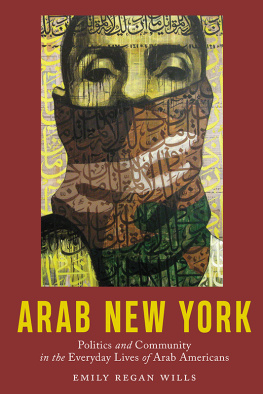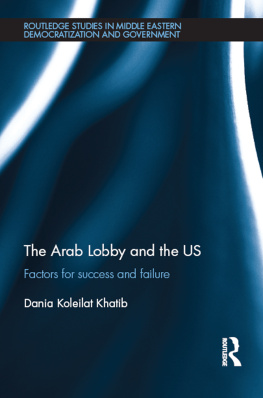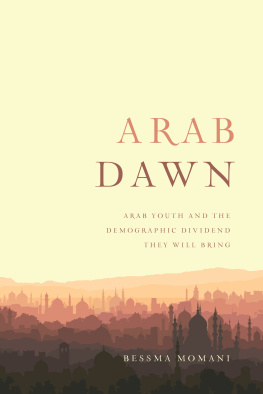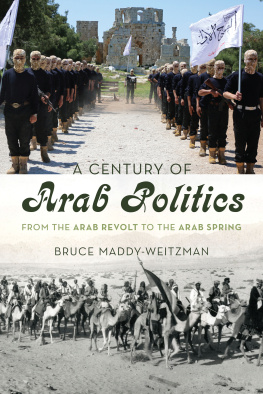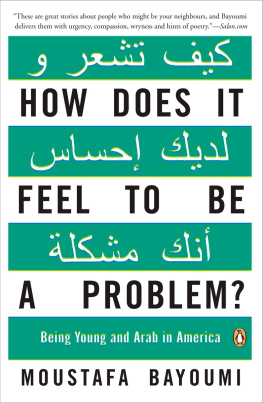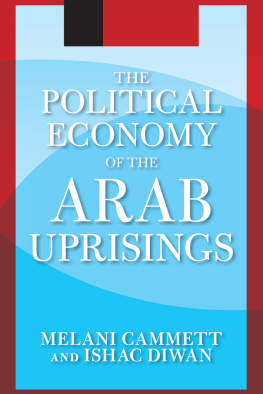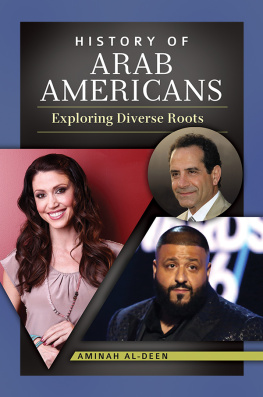Emily Regan Wills - Arab New York: Politics and Community in the Everyday Lives of Arab Americans
Here you can read online Emily Regan Wills - Arab New York: Politics and Community in the Everyday Lives of Arab Americans full text of the book (entire story) in english for free. Download pdf and epub, get meaning, cover and reviews about this ebook. City: New York, year: 2019, publisher: NYU Press, genre: Science. Description of the work, (preface) as well as reviews are available. Best literature library LitArk.com created for fans of good reading and offers a wide selection of genres:
Romance novel
Science fiction
Adventure
Detective
Science
History
Home and family
Prose
Art
Politics
Computer
Non-fiction
Religion
Business
Children
Humor
Choose a favorite category and find really read worthwhile books. Enjoy immersion in the world of imagination, feel the emotions of the characters or learn something new for yourself, make an fascinating discovery.
- Book:Arab New York: Politics and Community in the Everyday Lives of Arab Americans
- Author:
- Publisher:NYU Press
- Genre:
- Year:2019
- City:New York
- Rating:3 / 5
- Favourites:Add to favourites
- Your mark:
Arab New York: Politics and Community in the Everyday Lives of Arab Americans: summary, description and annotation
We offer to read an annotation, description, summary or preface (depends on what the author of the book "Arab New York: Politics and Community in the Everyday Lives of Arab Americans" wrote himself). If you haven't found the necessary information about the book — write in the comments, we will try to find it.
From Bay Ridge to Astoria, explore political action in Arab New York
Arab Americans are a numerically small proportion of the US population yet have been the target of a disproportionate amount of political scrutiny. Most non-Arab Americans know little about what life is actually like within Arab communities and in organizations run by and for the Arab community. Big political questions are central to the Arab American experiencehow are politics integrated into Arab Americans everyday lives?
In Arab New York, Emily Regan Wills looks outside the traditional ideas of political engagement to see the importance of politics in Arab American communities in New York. Regan Wills focuses on the spaces of public and communal life in the five boroughs of New York, which are home to the third largest concentration of people of Arab descent in the US. Many different ethnic and religious groups form the overarching Arab American identity, and their political engagement in the US is complex.
Regan Wills examines the way that daily practice and speech form the foundation of political action and meaning. Drawing on interviews and participant observation with activist groups and community organizations, Regan Wills explores topics such as Arab American identity for children, relationships with Arab and non-Arab Americans, young women as leaders in the Muslim and Arab American community, support and activism for Palestine, and revolutionary change in Egypt and Yemen. Ultimately, she claims that in order to understand Arab American political engagement and see how political action develops in Arab American contexts, one must understand Arab Americans in their own terms of political and public engagement. They are, Regan Wills argues, profoundly engaged with everyday politics and political questions that dont match up to conventional politics.
Arab New York draws from rich ethnographic data and presents a narrative, compelling picture of a community engaging with politics on its own terms. Written to expand the existing literature on Arab Americans to include more direct engagement with politics and discourse, Arab New York also serves as an appropriate introduction to Arab American communities, ethnic dynamics in New York City and elsewhere in urban America, and the concept of everyday politics.
Emily Regan Wills: author's other books
Who wrote Arab New York: Politics and Community in the Everyday Lives of Arab Americans? Find out the surname, the name of the author of the book and a list of all author's works by series.

